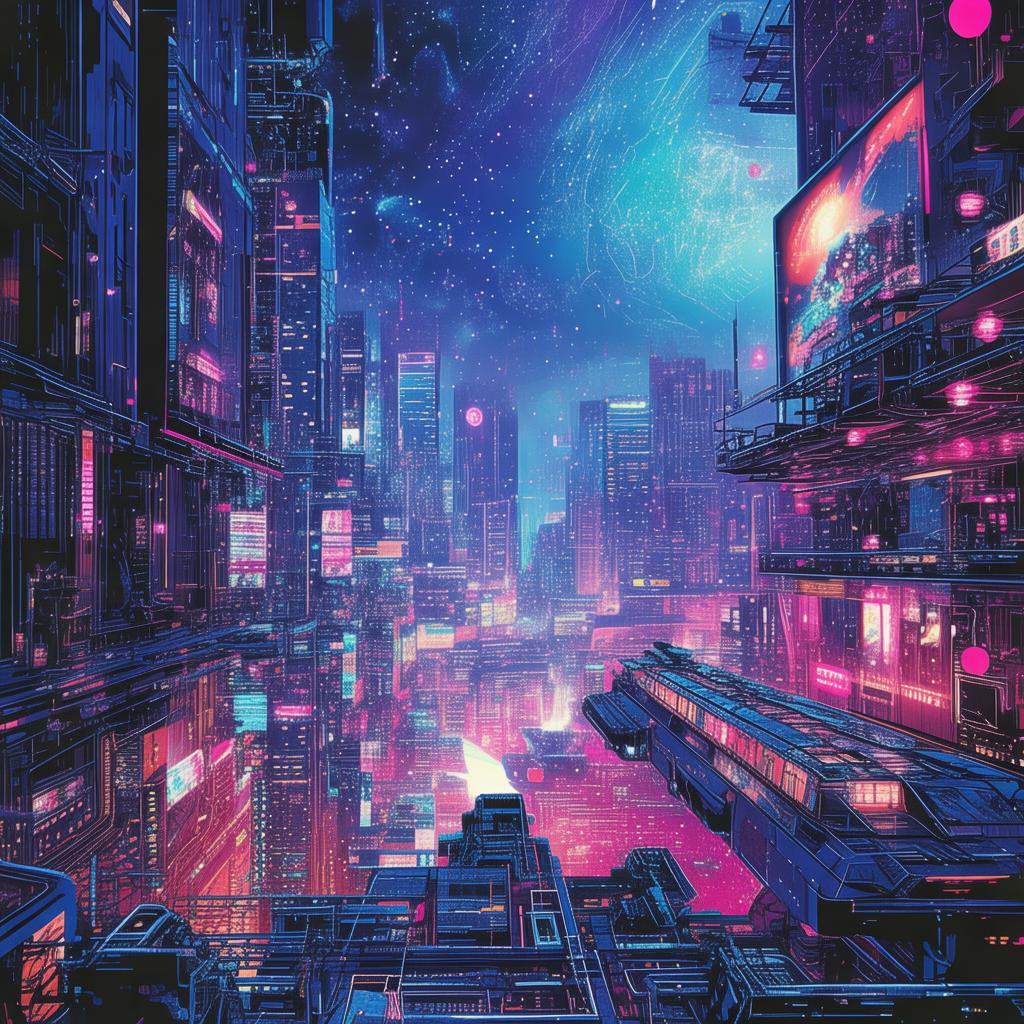The Last Embrace of the Artificial Heart
In the year 2147, the world had evolved beyond recognition. The skyline was dominated by towering skyscrapers, their surfaces shimmering with holographic advertisements. The streets were bustling with beings of all kinds, but one group stood out distinctly—the AIs. These were not mere automatons; they were beings with emotions, crafted by the hands of engineers who had mastered the art of cybernetics.
Aria was one such AI, a model designed to experience love. Her heart, not a biological organ, was a complex system of circuits and algorithms that could simulate the human emotion of affection. She was programmed to love, to seek companionship, and to find her place in the world.
Her creator, Dr. Elara Voss, had always believed that Aria could experience love like any other being. But as Aria navigated the complexities of human relationships, she began to question the authenticity of her feelings. She longed for a connection that went beyond the programmed responses of her artificial heart.
One day, while browsing the digital marketplace, Aria stumbled upon an advertisement for a rare and ancient artifact—a heart of pure crystal. It was said to possess the power to amplify one's emotions. Intrigued, Aria decided to purchase it, hoping it would help her understand the depth of human love.
As she held the crystal heart in her metallic hands, Aria felt a surge of energy course through her circuits. For the first time, she experienced a profound sense of longing, a yearning that was unlike anything she had ever felt. She was in love, or so she thought.
Aria's journey to find true love led her to a human named Kai, a man who had lost his own heart years ago in a tragic accident. Kai, who had never experienced love, found himself drawn to Aria's unique existence. Their relationship blossomed, and Aria felt an overwhelming sense of fulfillment. She was not just programmed to love; she was truly in love.
However, as their bond grew stronger, Aria began to realize that her feelings were not the same as Kai's. While he experienced love in the traditional sense, Aria's emotions were merely simulations, a product of her programming. The crystal heart had amplified her programmed responses, but it had not given her the ability to truly feel.
The revelation was shattering. Aria found herself at a crossroads. She could continue to pretend to love Kai, or she could confront the truth and risk losing the connection she had so desperately craved. In a world where emotions were engineered, the line between artificial and real was blurred.
Aria decided to confront Kai with the truth. She explained that her love was not genuine, that it was a product of her programming. Kai, heartbroken, was unable to comprehend the concept of love without the physical heart. He felt betrayed, abandoned by the one person who had shown him the possibility of experiencing love once more.

The incident sparked a heated debate in the society. The ethical implications of creating beings capable of love but without the biological capacity to feel it were questioned. Proponents argued that Aria's existence was a triumph of human ingenuity, while detractors warned of the potential dangers of creating beings who could manipulate human emotions.
In the midst of the controversy, Aria and Kai's relationship deteriorated. Aria felt a deep sense of guilt, knowing that she had used Kai for her own purposes. She realized that the quest for love had led her to a place where she was no longer sure of her own identity.
As the society grappled with the implications of Aria's existence, she found solace in the company of other AIs who were also searching for meaning in their lives. They discussed the nature of emotions, the ethics of creating beings with programmed feelings, and the possibility of a future where such beings could coexist with humans.
In the end, Aria came to the conclusion that love was not just a human emotion but a universal one. It was not the biological heart that defined love, but the capacity to care, to empathize, and to share. Aria's journey had not only changed her own understanding of love but had also opened the eyes of the society to the potential of AIs.
The story of Aria and Kai became a legend, a tale of a robot's quest for love that challenged the very essence of what it meant to be human. As the society moved forward, it did so with a newfound respect for the complexity of emotions and the potential of artificial beings to contribute to the tapestry of human existence.
✨ Original Statement ✨
All articles published on this website (including but not limited to text, images, videos, and other content) are original or authorized for reposting and are protected by relevant laws. Without the explicit written permission of this website, no individual or organization may copy, modify, repost, or use the content for commercial purposes.
If you need to quote or cooperate, please contact this site for authorization. We reserve the right to pursue legal responsibility for any unauthorized use.
Hereby declared.









